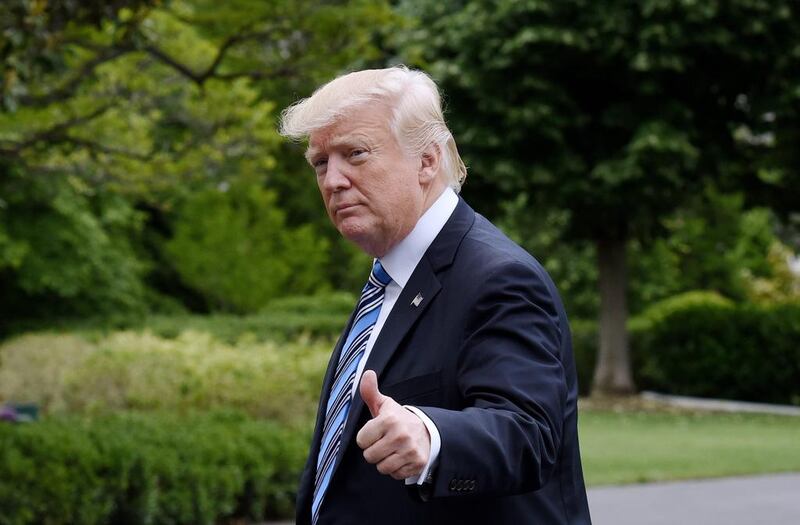Hours after conceding defeat to Donald Trump in the 2016 US presidential election last November, Hillary Clinton travelled to her home in upstate New York and temporarily withdrew from public life. As The National reported, Mrs Clinton wandered aimlessly through her house after election night, dressed in yoga pants and fleece, as she tried to come to terms with her loss. "How did this happen?", she wrote in her memoir. Mrs Clinton carried the popular vote but lost the country. To the victor the spoils, to the vanquished the slippers and sweatpants.
A year into Mr Trump's presidency, that question may be reframed as what just happened? Many seasoned political observers doubted Mr Trump would still be in the White House by now. A day after the president's inauguration, an event marred by claim and counter-claim about the size of the public gallery, protesters descended on Washington, DC, demonstrating against Mr Trump's election. Within weeks, Michael Flynn, his national security advisor, had resigned. His departure was the first of many. One official, Anthony Scaramucci, lasted just 11 days as White House communications director.
Mr Trump has enjoyed some success in foreign policy. Many in this region have admired his willingness to act with conviction and take on the Middle East's most malign influences. He has refused to recertify the Iran nuclear deal, calling it a "one-sided transaction", and has labelled the regime in Tehran "the world's leading state sponsor of terrorism". He matched words with deeds in Syria, where Bashar Al Assad used chemical weapons against his people and his actions were met with a retaliatory cruise missile strike by the United States. Compare that to the faltering response of Barack Obama to the Syrian regime.
So too in Afghanistan, where Mr Trump ordered the deployment of the "mother of all bombs" on ISIL-controlled enclaves. Elsewhere, his near declaration of war with North Korea – "military solutions are now fully in place, locked and loaded, should [they] act unwisely", he tweeted in August – has since been tempered by a dose of realpolitik. This week Mr Trump called upon Pyongyang to "make a deal". It's hard to detect a great strategic narrative here, although the symbolic gestures are writ large and generally positive.
Domestically, the report card is inconclusive. The US economy is doing well: unemployment is down, GDP growth is up and inflation is down, but the president's approval ratings are lower than those of any president in the past seven decades at an equivalent moment in an administration's life cycle. The gun control issue has been brought into sharp focus by recent events in Las Vegas and Sutherland Springs, but no one expects Mr Trump to grasp the nettle. His travel ban and healthcare plans have both been met with complication. America's 45th president is in policy as he is in person: part compelling, part confusing. A year ago he promised to "unify" America, but 12 months later the US seems disunited, although not dispirited.





